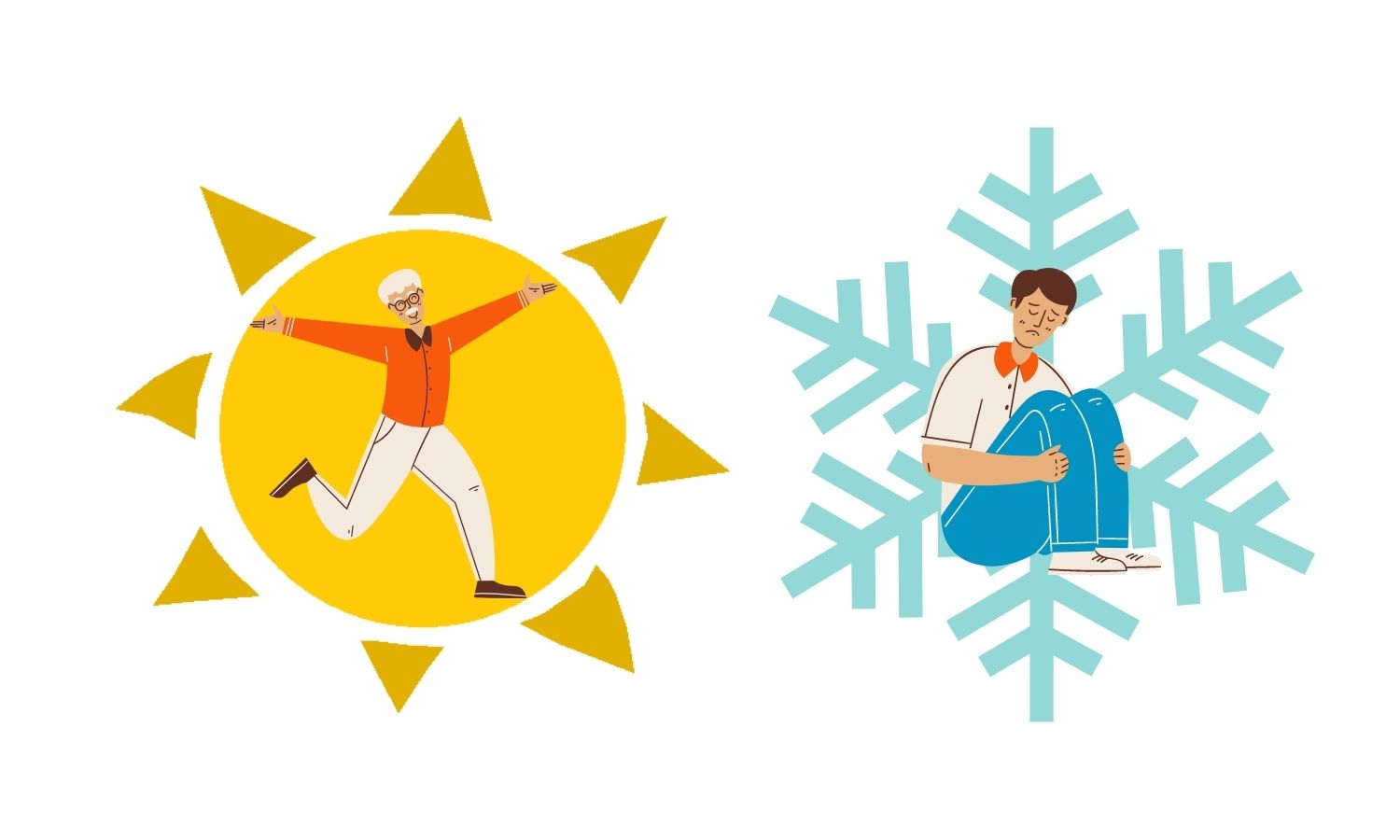
By Zoe Finholm//
Sophomore Rachel Shaw began to notice that she would feel “lively and bubbly and charismatic,” in the summer, but in the winter months, she “would just feel dead.” Shaw’s friends noticed that there is a difference between “summer-Rachel” and “winter-Rachel.” She says she used to imagine them to be two different people.
In the winter months, Shaw explains she begins to feel more depressed, hopeless and anxious. Her eating and sleeping habits were inconsistent. Shaw says she “feels like there is a cloud over my body pulling it down.”
Shaw was diagnosed with seasonal affective disorder (SAD) around her junior year of high school. “But I knew for a while that there was consistency in the patterns and every winter the same things were happening,” Shaw said.
As the temperature begins to drop and leaves begin to fall, so do people’s moods. SAD affects about 10 to 20% of the population, according to research out of Johns Hopkins University.
Feeling stressed is “completely normal,” Director of Wellness Amanda Dymek said. When this stress begins to impact every day activities, then “this is more than just stress, more than just general sadness. This is a disorder that needs treatment.”
This time of year can be hard for some people. Some common stressors include jobs, studying for exams, the rigor of classes increases, having less time to be with friends and family and heightened feelings of different emotions such as grief and isolation, according to Dymek.
“Our bodies are so connected to our environment,” Dymek said.
Researchers are finding that the reduced light hours is one of the factors. “Our bodies really thrive off of that light,” Dymek said. When we get less sunlight people begin to suffer.
Women of childbearing age are affected by SAD the most. When people reach menopause, then the rates of SAD significantly drop. A person’s location also affects the likelihood that they may be deal with SAD. For example, someone who lives in Alaska, where it stays dark for 67 days in the winter, would be more likely to develop SAD than someone who lives in Florida.
Getting less light is more than just “losing our tan from the summer,” Dymek said. Sunlight also regulates hormones, most importantly melatonin and serotonin.
Melatonin is released in our bodies on a daily basis as part of our circadian rhythm, which is the internal process that regulates our sleep/wake schedule, essentially our biological clock. As the sun goes down and the lights get turned off at the end of the day, our bodies release melatonin. This hormone makes us fall asleep and feel more tired. When we have less sunlight in the winter months, our bodies release more melatonin and makes us feel more tired and less motivated.
Serotonin has to do with pleasure and is released when we do things we enjoy. People get busier during the late fall and winter months, leaving less time to do the things they love.
Dymek also explained that humans are mammals. Many mammals, such as bears, hibernate, and before going into hibernation for the winter, mammals will get more fatigued, start eating more and have lower energy to prepare for the winter months.
“You can look for signs and symptoms of SAD in yourself and in the people you know. Some things to look for are a decrease in enjoyment in things you normally like, increased fatigue and overeating,” Dymek said.
When someone gets diagnosed with SAD, there are three main treatment options. Light therapy involves exposing yourself to an artificial light source if natural light is not an option. Someone also may consider changing the dosage of the antidepressants they already take or only taking antidepressants during the winter months when SAD is present. A doctor is required to get a diagnosis for these treatment options.
There are behavioral things that everyone can do in order to manage symptoms of the winter blues. Things like spending time outside, especially in the morning and having a normal sleep routine. Exercise is also beneficial because it releases “happy hormones” such as serotonin and dopamine.
Dymek encourages students to “ask intentional questions” in order to check in on their friends and let them know that they’re cared for.
“Feeling the winter blues is normal,” Dymek said. “But if it is something that is impacting your daily life, or is concerning, seek help.”
If you or someone you know needs help, contact Amanda Dymek at rzepkowski@hood.edu. If you or someone you know needs immediate help, call 911 or Campus Safety at 301-696-3111.



Be the first to comment